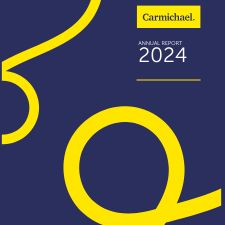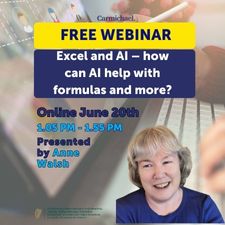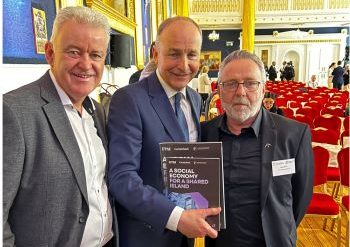Target Audience
Board Members, CEOs and Finance Managers of Charities.
Outline
SORP requirements for Charities and the responsibilities of the Board of Directors under the Charities Act.
The main areas covered will be:
- What are the responsibilities of the Board of Directors under the Charities Act
- What are SORP’s (Statements of Recommend Practice)
- What is the purpose of SORP
- Why are they necessary in charity financial reporting
- What are the requirements of SORP for Charities
- What is the connection between the Charities Act 2009 and SORP
- What are the key requirements of SORP FRS102 (latest SORP)
- How to lay out Financial Annual Accounts in SORP Format
- What is a Statement of Financial Activities (SOFA) and how to construct it
- The rules on Income recognition under SORP
- The rules of allocation Overheads by Charity Activity
- What is happening in the Regulators office for implementing a SORP in Ireland
- Latest information on the consultation process
- What is an Activity Report which is required from all charities regardless of size.
Methodology
Delivered virtually via Zoom.
Target Audience
Anyone involved in advocacy or looking to influence policy or legislation in an area of work relevant to their non-profit organisation.
Outline
Ever wondered how can our organisation secure a legislative or policy win? This workshop has been developed to share an insider-outsider perspective on how to succeed in influencing policy or legislative change for your organisation. The workshop will inform and provide a practical roadmap.
Overview of workshop
Part 1: Understanding – knowledge building
- The Oireachtas
- The legislative calendar and process
- Seanad Commencement Matters and Dáil Topical Issues
- Parliamentary Questions
- Tips on how to inform and influence TDs and Senators
Part 2: Influencing – how to effect change
- Defining your issue and policy/legislative solution
- Setting goals and objectives
- Identify the target audience and who to influence
- Stakeholder mapping and building partnerships/alliances
- Creating effective communications
Ending: Questions and Answers – draw on Jillian’s expertise for your organisations’ campaign.
Methodology
Delivered virtually via Zoom.
Target Audience
This course will be beneficial for chairs of boards, CEOs, senior managers leading executive teams, officers engaging in community outreach, education/training workers, and staff leading meetings.
Outline
Effective facilitation can lead to clearer focus and purposeful action. In this workshop you will be introduced to methodologies, tools and techniques to design and deliver engaging events and meetings, as well as some tips for overcoming facilitation challenges. You will also have a chance to think about what is working in your own facilitated sessions, and what can be improved.
Methodology
Delivered online via Zoom.
Target Audience
Anyone wishing to pick up some productivity tips in the use of MS Word, Excel, PowerPoint, Outlook. Prior knowledge of Microsoft Office/Microsoft 365 is essential.
Outline
In this course you will learn productivity tips from the following Microsoft programs:
Outlook
- Cleaning up your inbox
- Scheduling emails in advance
- Creating simple rules
- Using quick parts
Word
- Working with styles
- Contents pages
- Cover pages
- Watermarks
Excel
- Cleaning data
- Separating text from within a cell
- Locking cells
- Displaying data visually
PowerPoint
- Using slides from another presentation
- Changing fonts throughout the entire presentation
- Working with images and shapes
- Using the presenter view
Methodology
Delivered via Microsoft Teams. This session will be recorded and the recording will be circulated to participants on completion.
Target Audience
New Board Members, Directors, Charity Trustees of non-profit organisations.
Outline
A comprehensive induction is an important first step in ensuring that new Board Members, Directors and Charity Trustees have the understanding needed to carry out their roles, responsibilities and obligations effectively. This workshop aims to form part of that induction process.
Below is an outline of the topics covered:
- Governance Overview
- Board Members’ Roles and Responsibilities
- The Chairperson
- Board Relationship with CEO/Staff
- Company Limited by Guarantee – Directors
- Charity – Charity Trustees
- What more to expect from a Board Induction
Methodology
Delivered virtually via Zoom.
Target Audience
Board Members, Chairpersons and CEOs of non-profit organisations.
Outline
• Roles and responsibilities – Board, CEO, Chair
• Governance vs. Management
• Division of responsibilities
• Communication between CEO and Chair (Board)
• HR sub-committee (CEO Selection, Review, Remuneration, Succession Planning)
• CEO role in relation to the Board
• CEO performance appraisals – how to conduct appropriately
• Board only sessions
• Code of conduct
• Board evaluation (its value and purpose)
• Board Dilemmas
Methodology
Delivered virtually via Zoom.
Target Audience
Managers and Board Members of charities and not-for-profits.
Outline
This interactive workshop will provide the participant with a view of the cyber security risks faced by charities and not-for-profits and measures they can take to reduce these risks.
- Introduction:
- What is cyber security and why is it important?
- The different types of cyber threats.
- The impact of a cyber attack on a charity or not-for-profit.
- The importance of cyber security awareness for management.
- Case studies
- Cyber security best practices:
- Social engineering
- Password security
- Email security
- Physical security
- Incident response
Methodology
Delivered virtually via Google Meet. There are a number of short videos showing examples of various techniques being used to compromise people. A copy of the slides will be provided as well as a link to download cyber security related guidance.
Target Audience
Board Members and Trustees.
Outline
Board Members have ultimate responsibility for the finances of their organisation and must exercise good financial stewardship. This online workshop aims to give Board Members the skills and knowledge to understand financial information that they are typically provided with on a regular basis, what to ask for, warning signs to watch out for and questions to ask.
The main areas covered will be:
- Board members financial responsibilities
- Different types of financial reports
- Understanding and interpreting financial reports
- Warning signs.
Methodology
Delivered virtually via Zoom.
Target Audience
The Treasurer has an important role in an organisation. An effective treasurer contributes to a successful organisation and is essential to Community, Voluntary or Charitable Organisations fulfilling their responsibility to manage their money and other resources properly. This workshop is for anyone who is a Treasurer or may be thinking of taking up office as a Treasurer and anyone looking to appoint or recruit a treasurer.
Outline
The main areas covered will be:
- Main responsibilities and duties of a treasurer
- Characteristics of a good treasurer
- Useful skills for a treasurer
- Tips for being an effective treasurer
- Pit falls to avoid
- Basic rules of dealing with money
- How the Treasurer fits into the management committee or Board
- Accountability
The workshop will include discussions and practical examples of how to carry out the duties of a treasurer and good practice
Methodology
Delivered virtually via Zoom.
Target Audience
Managers and staff, responsible for data protection of charities and not-for-profits.
Outline
This training course is designed to engage management and staff of charities & non-profits, helping them understand the requirements of the GDPR and how to become compliant with a set of policies and procedures. These are presented in a practical and accessible manner, with templates provided to the attendees
1. The fundamentals of the GDPR
- The key principles of the GDPR
- Legal basis for processing
- Data Subject rights
2. Required policies, procedures, and records
- Data Protection Policy
- Data Protection Officer needed – Yes/No?
- Data Inventory
- Data Retention Policy
- Information Security Policy
- Records of Processing Activities (ROPA)
- Data Protection Notice for website (privacy statement)
- Procedures for handling individual’s rights
- Data breach handling procedure
- CCTV Policy (may be optional)
3. Other requirements (e.g. Data Protection Impact Assessments – DPIA)
Methodology
Delivered virtually, via Google Meet. A copy of the slides will be provided as well as a link to download the templates.



